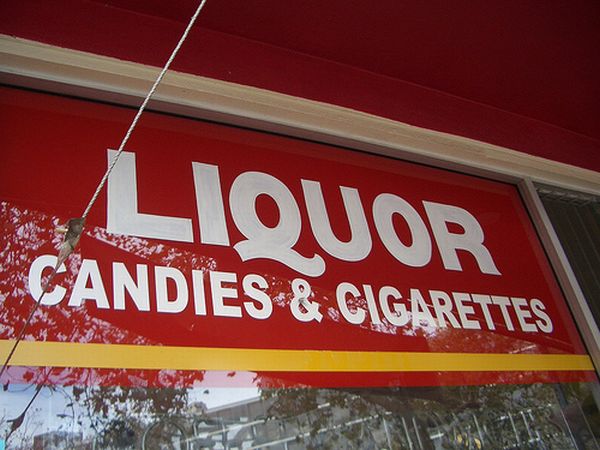Selling ‘Sin’ – Buying ‘Sin’ (Only in the Age of Consumerism)

Marketers are aware that they are promoting socially controversial products, if they are indeed doing precisely that. If this should be seen in the light of irresponsibility, then, by all means, these marketers are irresponsible and unethical in their trade. It is, therefore, imbued upon business marketing to know better and not let the bad prosper.
On the other hand, the underlying principle of business is profit. Any business is constructed on the foundation of the so-called bottom line. In the old and traditional business models, such as the ones that Milton Friedman, a stalwart figure in economics, stood for, it is generally believed that the responsibility of business is to increase its profits for the benefit of its stockholders. This is the old view of management ethics. Therefore, the marketer is beholden, first and foremost, to the corporation that he serves and that expects him to sell the product, no matter how controversial.
The concept of socially responsible business is of later vintage. Corporate culture has grown in the last few decades to now be mature enough to realize that business is beholden to stakeholders of the entire value chain, not just to its stockholders.
Anything destructive or life-threatening is automatically a fundamental ethical consideration. The ‘life’ in the concept of life-threatening includes threats other than to life and limb alone. Contributory to the destruction or demise of society or the environment can also be considered life-threatening.
‘Bad’ is a concept of morality and ethics. So, a ‘bad’ product is a product that is ultimately immoral and unethical. These are generically called ‘sin’ products, or those whose consumption make people less than what they should be in terms of being upright human beings. ‘Bad’ can also mean what is detrimental to a person’s wellbeing, which basically translates to a person’s health and state of fitness (more often than not, this means physical and mental health).
General norms and standards in society determine if a product is ‘bad.’ The church and moral groups, for instance, consider ‘sin’ products as bad. They do so because they take it upon themselves to be the moral arbiters of society. Medical professionals determine the ‘bad’ products that may harm health and wellbeing of people.
Cigarettes and liquor are both detrimental to people’s physical, mental, psychological, social, and moral wellbeing. (But haven’t we known this all along?) This is the reason why these two ‘sin’ products have been controversial ever since.

Gambling leads to deterioration of physical and mental health, as well as economic wellbeing of families and society in general. It is a ‘sin’ product or service, as well. Yes, the marketers of casinos are unethical marketing professionals. This is for the sole reason that they are completely aware of the immoral and unethical dimensions of what they are marketing – and still pursue the efforts of marketing them. In the area of moral ‘sin,’ this is what may be termed as double jeopardy because the controversial product is in itself regarded as ‘sin’ and pursuing its promotion is a willful act of ‘sinning,’ as well.
It is already a given how gambling leads to addiction to gamble. This is psychological rotting. Additionally, there have been countless instances when gambling ultimately depletes one’s financial resources and eventually ruins one’s family. Marketers of this business are willful condoners of this malaise who are conscious individuals, complete with the knowledge of what the ‘sin’ product can do to the lives of people. Marketing gambling services is tolerating this social malaise.
One note not to be missed: marketing connotes widespread promotion and market development. Promoting gambling is tantamount to telling people that the social malaise should simply be ignored and tolerated, thereby encouraging them to ‘sin.’ Also, because marketing means development of new markets, the act of marketing and promoting gambling will develop other markets that were otherwise not tainted with the social malaise of gambling.
I could never market products that are ‘made in China,’ no matter how their cheap price overheads seem enticing enough for profit margins. This is because I can never market lies. Chinese products, those that come in huge volumes at dirt cheap prices, are known for their deplorable quality, and unsafe materials and production processes. Chinese products are generally considered health hazards. Their milk is tainted with melamine, like their eggs and animal feeds are. Their electronic products are substandard and generally considered lemons, if not fire hazards.
Most importantly, China is known for its widespread pollution. The country has surpassed the United States in terms of greenhouse gas emissions. Any country that continues its unabated irresponsibility with the use of coal, a fossil fuel, and CO2 emissions should be meted with trade embargos.
In this global business of selling (and in the age of consumption), it doesn’t matter where the marketer of ‘sin’ is located, or where the buyer of ‘sin’ makes the purchase. The (not so thin) dividing line does not even lie between those who have disposable income and those with no purchasing power. It only matters whether the seller or the buyer even thinks that there’s a correlation between ‘bad’ and ‘sinful.’

Hello, Grace!
Hey, it’s me, Zeny Dominguez!
I enjoyed reading this well written article of yours. I would like to read more from you. Which website/s should I visit?
Best regards,
Zeny
Zeny Dominguez
November 5, 2008 at 10:29 pm